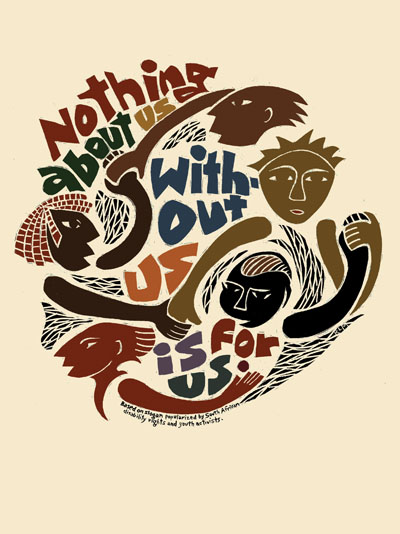Lessons and Learnings from Tapping the Potential of Community Engagement 2021
Amid the global pandemic, the climate crisis, and the on-going reckoning with racism at all levels, everyone is doing the best they can to navigate all the things. It’s been a trip. At the Nexus Community Engagement Institute (NCEI), we have been working hard with our community to adapt our work to be joyful, life-giving, and impactful in a virtual space, amidst all that is happening.
In 2021, we hosted our second online training for Tapping the Potential of Community Engagement, an introduction to the Field of Community Engagement. Contending with Zoom fatigue on top of all these on-going crises, we weren’t sure what participants would walk away with. Turns out, folks learned a lot. And we did too.
We wanted to pause and offer some of our reflections from this year’s cohort to other comrades in the movement trying to host each other in this socially distanced reality.
Context
Before we share these reflections, we wanted to take time to share our context. Right now, NCEI is exploring what it means to do our work in this moment, and in this ecosystem of people, communities, and organizations doing the work. Taking our lessons from the natural world, dandelions have been particularly resonant with us. They help new plants grow by enriching the soil with nutrients, by pulling out toxins, and by loosening up soil structure.
At NCEI, we are trying embrace our role as dandelions. How do we build deep roots and networks of community care while also helping community authorship, leadership and ownership take root within systems?
One way we do this is through our annual training series, Tapping the Potential of Community Engagement. Our goal is to provide space for folks to explore how culture, healing, history, identity, power, relationships and trust impact community engagement, as well as how they are strengthened through authentic engagement processes (see our Impacts Model here).
Tapping the Potential 2021
From the beginning, this iteration of Tapping the Potential felt different. On average, the cohort self-identified as more experienced in communinty engagement than any cohort we hosted before.* Based on past feedback, we also added a fifth, 3-hour session to explore culture change more explicitly, bringing us to a total of 15 Zoom session hours.
We weren’t sure what to expect—would participants come back after the first session? What would they takeaway? In the end, not only did we retain 95% of the cohort for the duration of the series, but participants also named some powerful learnings and desire to continue pausing for reflection and healing.
Relationships and healing at the center
What we learned is that people trying to engage community right now are thirsty to be together. They are committed to pushing systems to do better, but are dedicated to taking care of themselves, to slowing down for self-preservation and their health. Participants named their desire for pause, space for reflection, for healing, and for connection.
- “I feel emboldened by the series to stand firm in the approach my team takes to community engagement.”
- “Dominant culture/white supremacy is still here, and [I’m learning] how that shows up in myself and the work; healing through community engagement.”
- “I plan on building in more time to reset, reflect and repair. Take tips from Pleasure Activism and other healing. I often go 100 MPH and actually even though I am in a good space…I need boundaries and time to slow down…”
Value the process as much as the outcomes
In community engagement, we’ve always known that how we do our work is as important—if not more important—than what we do in our work. For our online programming, that principle remains as true as ever. It has been vital that we take time in trainings to build relationships; that we break up Zoom meetings with time for small groups and individual activities; that we dig into deep personal and group reflection; and that we still ‘read the room’ and scrap the agenda at times to make space for emerging needs.
Participants confirmed this for us:
- “This series created/modeled an experience for me that I want to replicate. I want to shift to focusing on the inner circle of the community engagement model.”
- “The importance of the ‘invitation’ and of ‘presence.’ The way your team used technology and adapted practices in real time was very thoughtful and wise. Maybe the truest expression of the values we discussed.”
- “When applying for grants, we will focus more on relationship building as a key goal/outcome.”
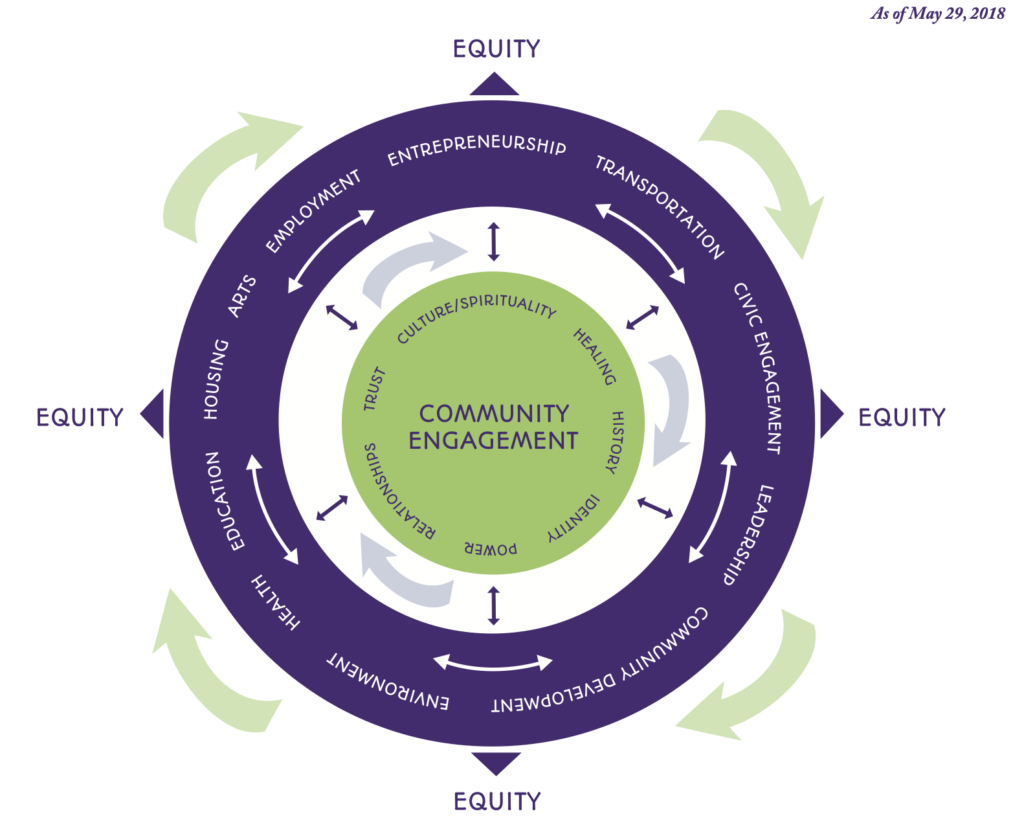
Embed body movement and story-telling
This year, we took another step towards integrating movement and playfulness into our sessions by mailing participants an interactive Playbook and a fidget spinner. The playbook was designed to spark the deeper dialog that community engagement requires through coloring sheets, stretching activities, I Am Poems, reflection questions, and more. Being vulnerable, speaking truth, and learning from each other’s stories to help complicate our own world view.
- “I feel like I learned so much about how to hold space as well as the content…the most important thing I learned is to let go of the idea of ‘knowing’ as a goal and more deeply accepted my place at the start of a powerful journey.”
- “The biggest takeaway was how the series modeled the main takeaway that I think you intended, which was focusing on the inner circle of community engagement and letting anything from the outer circle flow from there.” Learn more about our impact model here.
Life-giving spaces
There were many other take-aways shared by participants – deeper self-awareness, greater understanding of how community engagement and equity are linked, tools for how to move from outreach toward engagement, stories of successful engagement practices, and more.
But what stood out most to us was that hosting cohort experiences online can still be life-giving. By intentionally crafting our space and time, we could create opportunities to build relationships, to embrace many ways of thinking and learning, and to let stories and healing to emerge.
It’s always an honor to host cohort experiences with brilliant and powerful community members – this is why we love community engagement. We learned a lot from the participants in Tapping the Potential this year, and we’re excited to continue deepening our work together moving forward.
Stay tuned for the re-launching of the Engaged Learning Series this May, and for registration for the 2022 Tapping the Potential series this fall! For more information, email us at NCEI@nexuscp.org.
*82% of participants in Tapping the Potential 2021 identified as “advanced” or “intermediate” in community engagement experience, compared to 73% in 2020, and 51% in 2019.
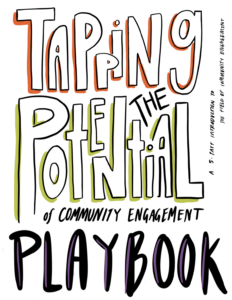 What is the Playbook?
What is the Playbook?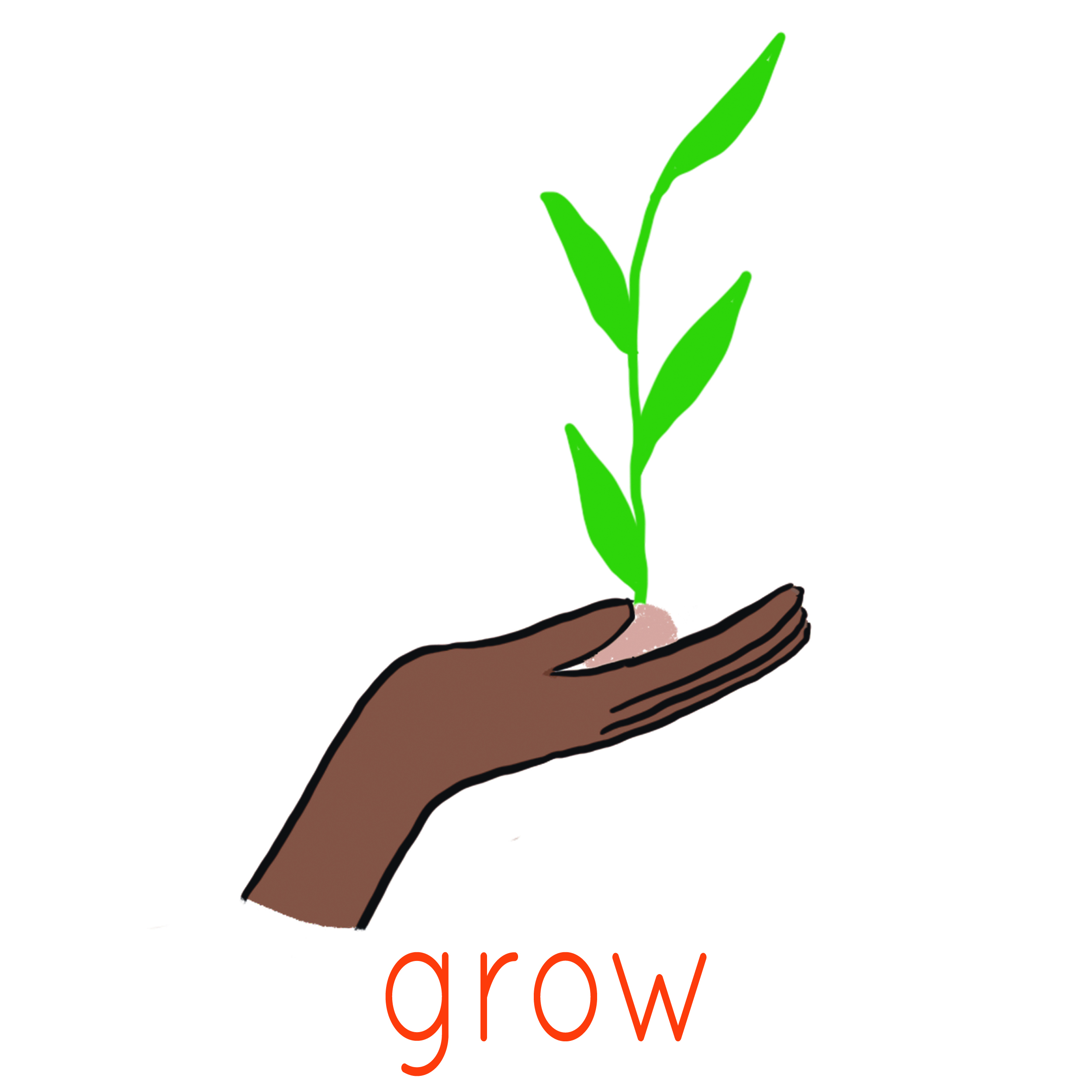 in this body of work, we welcome people to the practice of community engagement as a means of achieving racial equity and abolishing oppressive systems. In addition, we expand the tools and networks for folks already doing this work. We call this “grow” because this is where we grow the field through training and workshops in what community engagement is, and how to do it.
in this body of work, we welcome people to the practice of community engagement as a means of achieving racial equity and abolishing oppressive systems. In addition, we expand the tools and networks for folks already doing this work. We call this “grow” because this is where we grow the field through training and workshops in what community engagement is, and how to do it.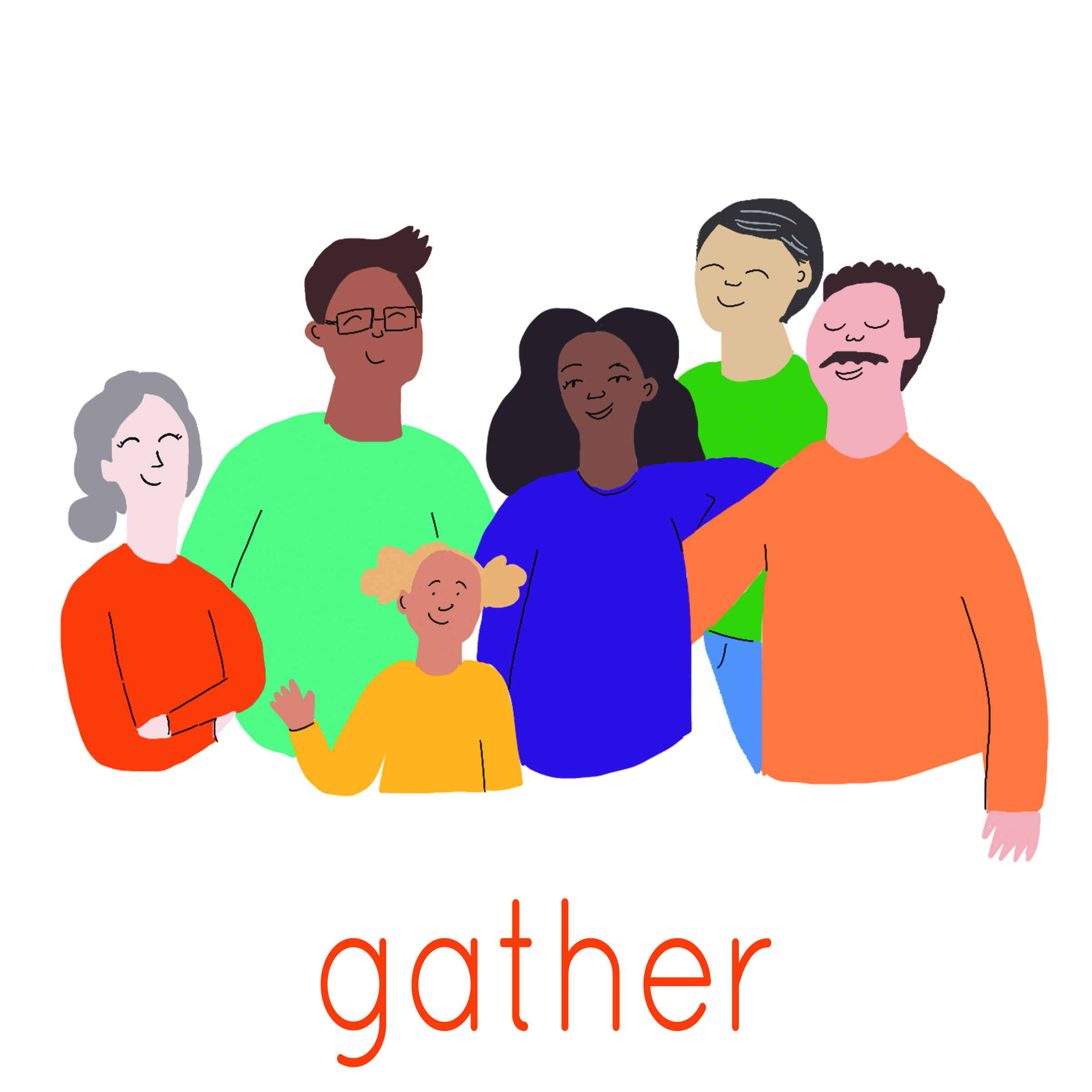 In this body of work, we convene folks together in communities of practice. In these gatherings and cohorts, we deepen our practice in using community engagement to eliminate systems of oppression and transform organizations and communities. We call this “gather” because we bring folks together to learn from each other, support one another, and heal from the harm of working within historically oppressive systems.
In this body of work, we convene folks together in communities of practice. In these gatherings and cohorts, we deepen our practice in using community engagement to eliminate systems of oppression and transform organizations and communities. We call this “gather” because we bring folks together to learn from each other, support one another, and heal from the harm of working within historically oppressive systems.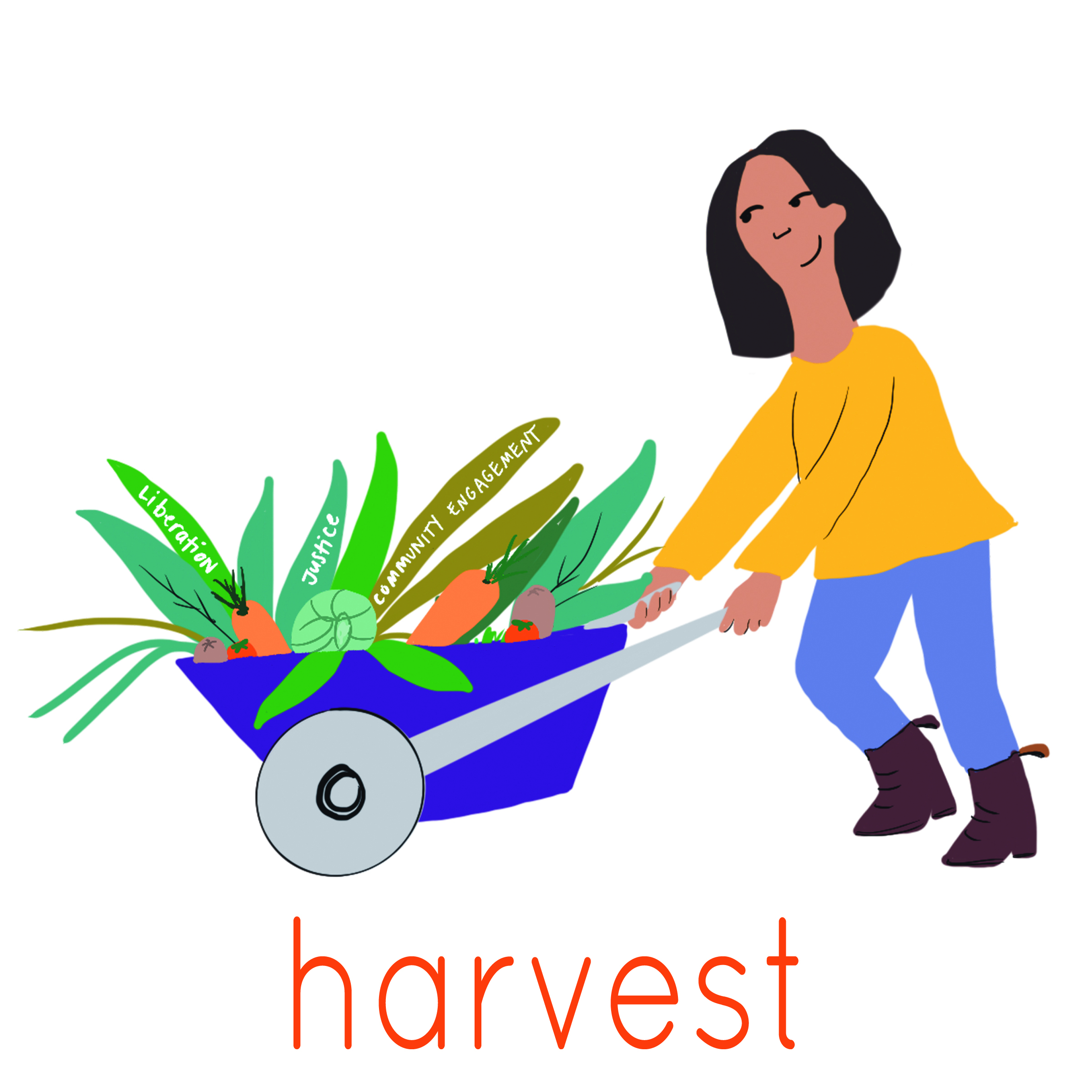 In this body of work, we build on the collected wisdom of the folks we’ve grown and gathered with. From this knowledge, we co-create tools and resources to nourish the field of community engagement. We call this “harvest” because we’re harvesting the wisdom that we’ve cultivated together.
In this body of work, we build on the collected wisdom of the folks we’ve grown and gathered with. From this knowledge, we co-create tools and resources to nourish the field of community engagement. We call this “harvest” because we’re harvesting the wisdom that we’ve cultivated together.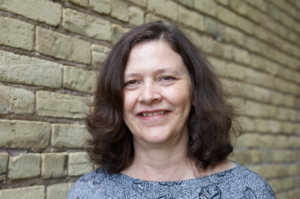 Janice Barbee is the director and founder of
Janice Barbee is the director and founder of 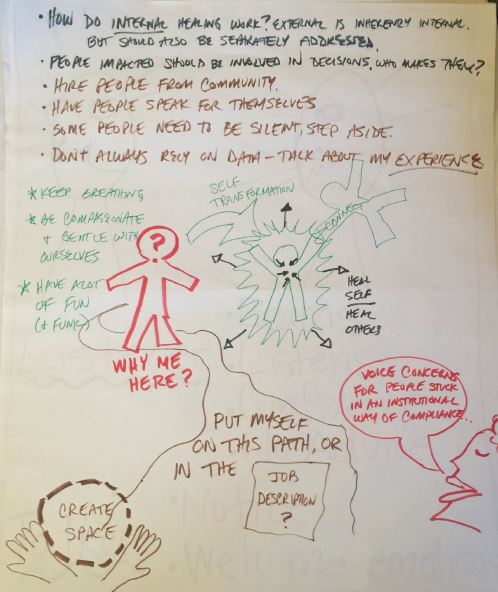
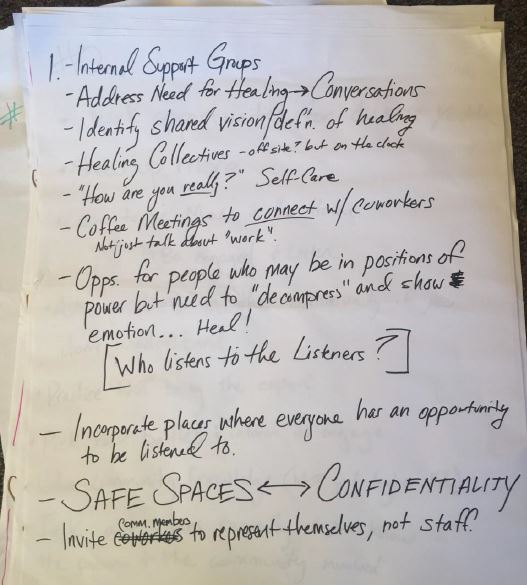

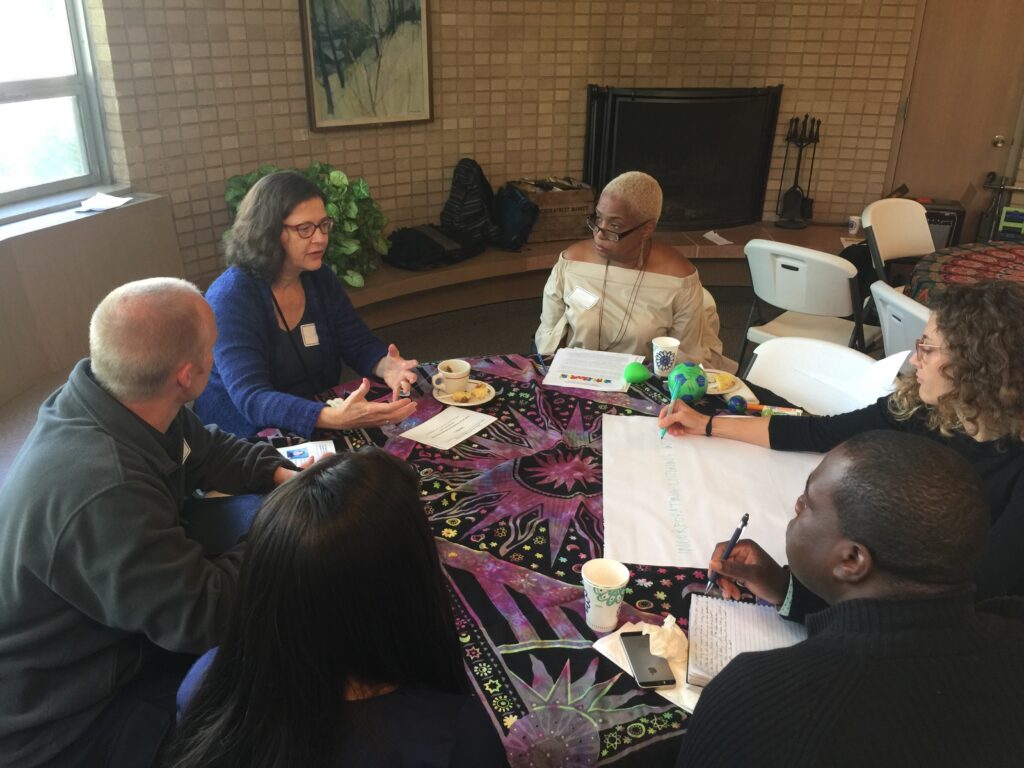
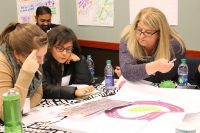 NOTE: Attendance at all four sessions is required, as this is a cohort experience and each session builds upon previous sessions.
NOTE: Attendance at all four sessions is required, as this is a cohort experience and each session builds upon previous sessions.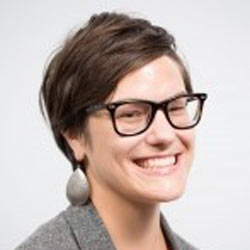
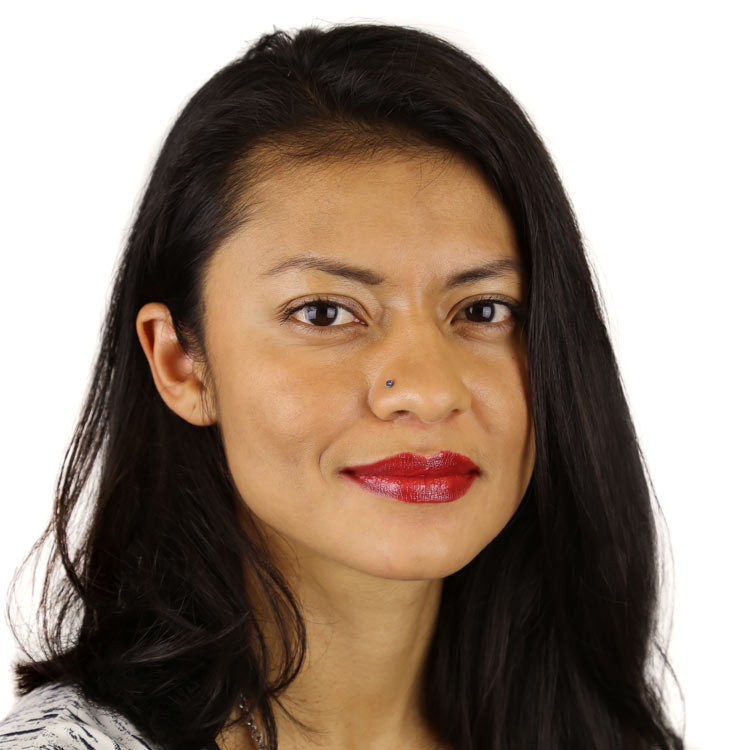 Driven by a commitment to equity and wholeness, Sindy works with Wilder’s Community Initiatives team to catalyze the cultural shifts needed to co-create transformational and sustainable change. Her work is informed by a rich tapestry of experiences in higher-education advocacy, community collaborations, and faith-based activism. As a facilitator, Sindy enjoys cultivating spaces of meaningful reflection and dialogue that enable participants to strategically advance new thinking and action in their lives and work.
Driven by a commitment to equity and wholeness, Sindy works with Wilder’s Community Initiatives team to catalyze the cultural shifts needed to co-create transformational and sustainable change. Her work is informed by a rich tapestry of experiences in higher-education advocacy, community collaborations, and faith-based activism. As a facilitator, Sindy enjoys cultivating spaces of meaningful reflection and dialogue that enable participants to strategically advance new thinking and action in their lives and work.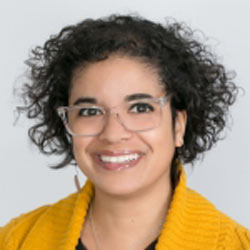 Venessa is a local artist and advocate who, since 1997, has worked in Twin Cities arts, community development, and grantmaking nonprofits. Recently, she held positions at the Bush Foundation and Jerome Foundation – both in grantmaking and communications. Venessa is an alum of the inaugural cohort of the Ron McKinley Philanthropy Fellowship.
Venessa is a local artist and advocate who, since 1997, has worked in Twin Cities arts, community development, and grantmaking nonprofits. Recently, she held positions at the Bush Foundation and Jerome Foundation – both in grantmaking and communications. Venessa is an alum of the inaugural cohort of the Ron McKinley Philanthropy Fellowship.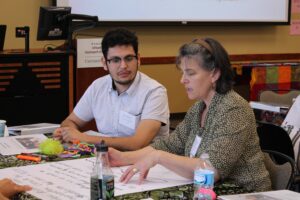
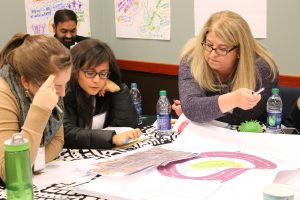 to create equitable, healthy, and sustainable communities. The sessions are for anyone who is interested in learning more about community engagement, or for those who wish to deepen their work with community.
to create equitable, healthy, and sustainable communities. The sessions are for anyone who is interested in learning more about community engagement, or for those who wish to deepen their work with community.